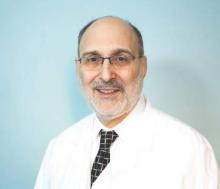At the summer meetings of the American Academy of Dermatology, AAD President Abel Torres screened a video of members responding to the question, “What keeps you up at night?” A recurring refrain in many of their responses was, “loss of autonomy.”
Many physicians feel they are losing autonomy. No doubt they are right. But physicians are not alone in their loss.
A young academic friend of mine had a similar lament. “Some assistant dean sent me an email ordering me to grade my students in a way that made no sense,” he said. “I challenged him to explain why. He answered that my school was following the guidelines of some organization I’d never heard of.”
“Academics used to be autonomous,” he said. “No more.”
Another professor friend decided to retire. “Forty years in the department,” he said, “10 as chair. Now a junior administrator tells me that I have to spend more hours on campus, even though I don’t have anything useful to do when I’m there. She said there are new rules for more academic efficiency.”
New administrators. Guidelines. Efficiency. Experienced hands dropping out or retiring out of frustration. Any of these sound familiar?
Teachers also complain to me about their loss of autonomy. “I used to be able to use judgment,” said one. “I knew what worked for a specific student. Now I just teach to the standardized test.
“For every one of my 23 kindergartners, I spent 1 hour filling out an iPad questionnaire on reading readiness. I’ve had it.”
“What will you do instead?” I asked him.
“Something with dogs,” he said.
And so it goes. Accountants and attorneys complain about heavy reporting regulations, with new ones added each year. Judges in Wisconsin make sentencing decisions using proprietary algorithms that no one outside the company that sells the algorithms has validated. Financial advisers have clients sign boilerplate statements documenting that they accept a certain level of risk. These clients may or may not understand what “level of risk” really implies, but either way they must sign a form, and the form must be filed. If you didn’t document it, you didn’t do it. If you documented it, you did it, even though you may not have really done anything meaningful.
An internist told me how things are in her new dispensation.
“They allow 15 minutes for a physical,” she said, “which is not enough anyway. But I also have to check off boxes for the EMR that add nothing to patient care. Last year we had to start asking about gender status. ‘What was your gender assignment at birth?’ ‘What is it now?’ We have to ask that every year – and click the box that says we did it.
“Several docs in our group retired. Another bunch went concierge. They couldn’t deal with it anymore.”
Metrics. Algorithms. Higher authorities who tell professionals what to do, how to do it, how to record it, business quants with scant understanding of what professionals actually profess. All so familiar and tiresome. It’s everywhere, and it’s bigger than any of us.
Loss of autonomy by professionals across the board reflects a changed understanding by society at large of what quality service is and how it should be judged. Numbers are in. Personal judgment – in our case, clinical judgment – is out. Since judgment can’t be measured, it cannot be trusted.
To a certain extent, autonomy is an illusion. We can do what we want as long as powers larger than we are – natural, social, political – let us do it. Those powers may lie dormant for a while, but they’re always there, and always have been. When they wake up and change the rules of the game, everyone has to adapt. New burdens in the practice of medicine are just one instance of a much broader trend.
Our professional organizations know this well. They are hard at work giving the authorities, government, and insurance administrators what they demand: data showing that what we do is useful, in the quantitative terms the authorities will accept.
To the extent that they succeed, we will be able to do some of what we want to do. Young people entering the medical field will expect nothing more. Some of their older colleagues will be satisfied that they are autonomous enough. The rest will have to find something else to do.
Dr. Rockoff practices dermatology in Brookline, Mass. He is on the clinical faculty at Tufts University School of Medicine, Boston, and has taught senior medical students and other trainees for 30 years.


